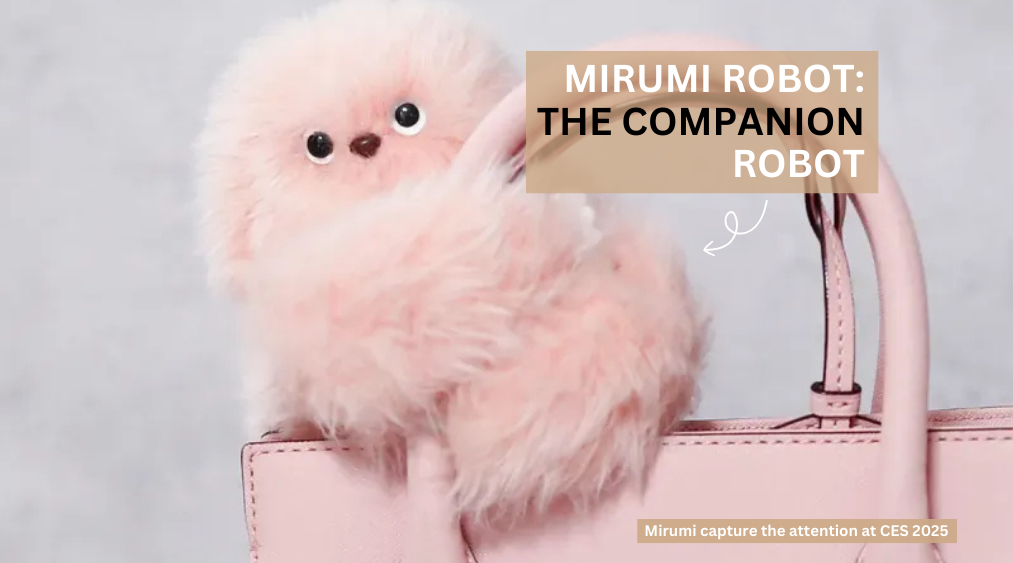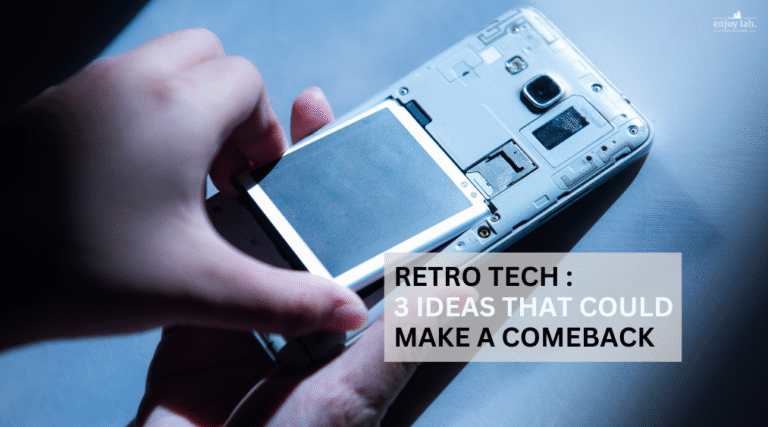My observation: the companion robot is coming home. Robots are no longer confined to factories and warehouses—they enter our homes as our companion robot, helper, and even protector. At CES 2025, Yukai Engineering unveiled Mirumi, a revolutionary companion robot that mimics infant interactions, bringing a new level of emotional connection. This isn’t just another gadget; it’s a glimpse into a future where robots become integral to our daily lives.
To be honest, I was confused by Mirumi’s debut. I wondered why the inventor needed to invent this robot, which, on the surface, seems to have little utility or application to me as an engineer. Then I realised it was designed to evoke warmth, connection, and companionship!
About Yukai Engineering
Before we dive into Mirumi, let’s take a moment to appreciate the minds behind this innovation. Yukai Engineering is a Japanese robotics company founded in 2015, known for creating unique and emotionally engaging robots. Their mission is simple yet profound: to bridge the gap between humans and robots through designs that evoke empathy and connection.
This is not Yukai Engineering’s first creation. They have had previous creations, like Bocco, a communication robot that helps families stay connected, and Qoobo, a robotic pet pillow that provides comfort through lifelike movements. These projects have earned the company a reputation for blending cutting-edge technology with emotional appeal, making robotics accessible and relatable. For sure, they are the innovation leader in companion robot!
With Mirumi, Yukai Engineering attempts to create a robot that interacts with humans and fosters emotional bonding.
The Mirumi Robot: A New Era of Companion Robots
So, what makes Mirumi so special? At its core, Mirumi is designed to mimic infant-like interactions—cooing, giggling, and responding to touch. This isn’t just about creating a cute robot; it’s about evoking the emotional connection that comes naturally with human infants. Powered by sensors, it reacts like a baby around different elements near you, such as friends, strangers, or unknown objects.
Design Philosophy
What is interesting about Mirumi is its focus on emotional connection. While many robots are designed for functionality, Mirumi is intended to evoke warmth and trust. It’s not just a machine; it’s a pet-like companion that can provide comfort and entertainment.
The Rise of Companion Robot: Addressing the Need for Companionship
I first encountered a companion robot while watching the Korean variety show Mum’s Diary. I was fascinated when, in one of the episodes, one of the show’s key celebrities was talking to his companion robot at home. I was wondering if I could get one!
Very likely, the demand for companion robot will be on the rise:
- Loneliness and Social Isolation: Many people feel disconnected and alone in an increasingly digital world. Companion robots offer a way to fill that emotional gap.
- Busy Lifestyles: For those who don’t have the time or resources for traditional pet ownership, robots like Mirumi provide a low-maintenance alternative.
- Therapeutic Benefits: Companion robots can offer emotional support for individuals with anxiety, depression, or dementia, helping to reduce feelings of isolation.
Mirumi is more than just a robot. By mimicking infant-like interactions, it helps create a sense of bonding and companionship that feels genuine and comforting.
What if We Could Power Up the Companion Robot further?!
While Mirumi’s early potential seems to provide us with a robot companion and emotional connection, maybe we could have more utility built in.
For instance, here are three areas in which I feel Mirumi could be powered up:
1. Protective Surveillance
Mirumi could double as a safety device, offering protective surveillance for vulnerable individuals:
- For Children: Mirumi could monitor kids’ activities, alert parents to potential dangers, or even interact with children to keep them engaged and safe.
- For the Elderly: Mirumi could provide companionship while also monitoring and alerting caregivers in emergencies.
2. Home Assistance
With its AI capabilities, Mirumi could evolve to assist with daily tasks:
- Reminding users to take medication.
- Helping with light chores or serving as a smart home hub.
- Help to read a book.
3. Emotional Support
Mirumi’s infant-like interactions could offer therapeutic benefits:
- For individuals with anxiety or depression, Mirumi could provide comfort and reduce feelings of isolation.
- For those with dementia, Mirumi could serve as a calming presence, helping to reduce agitation and improve mood.
Final Thoughts
The robot is definitely coming home as companion robot. Introducing robots like Mirumi significantly shifts how we perceive and interact with technology. No longer confined to industrial applications, robots are becoming a part of our everyday lives, offering emotional support, practical assistance, and even a sense of wonder. Mirumi is a reminder that the future of robotics is not just about functionality—it’s also about heart.








